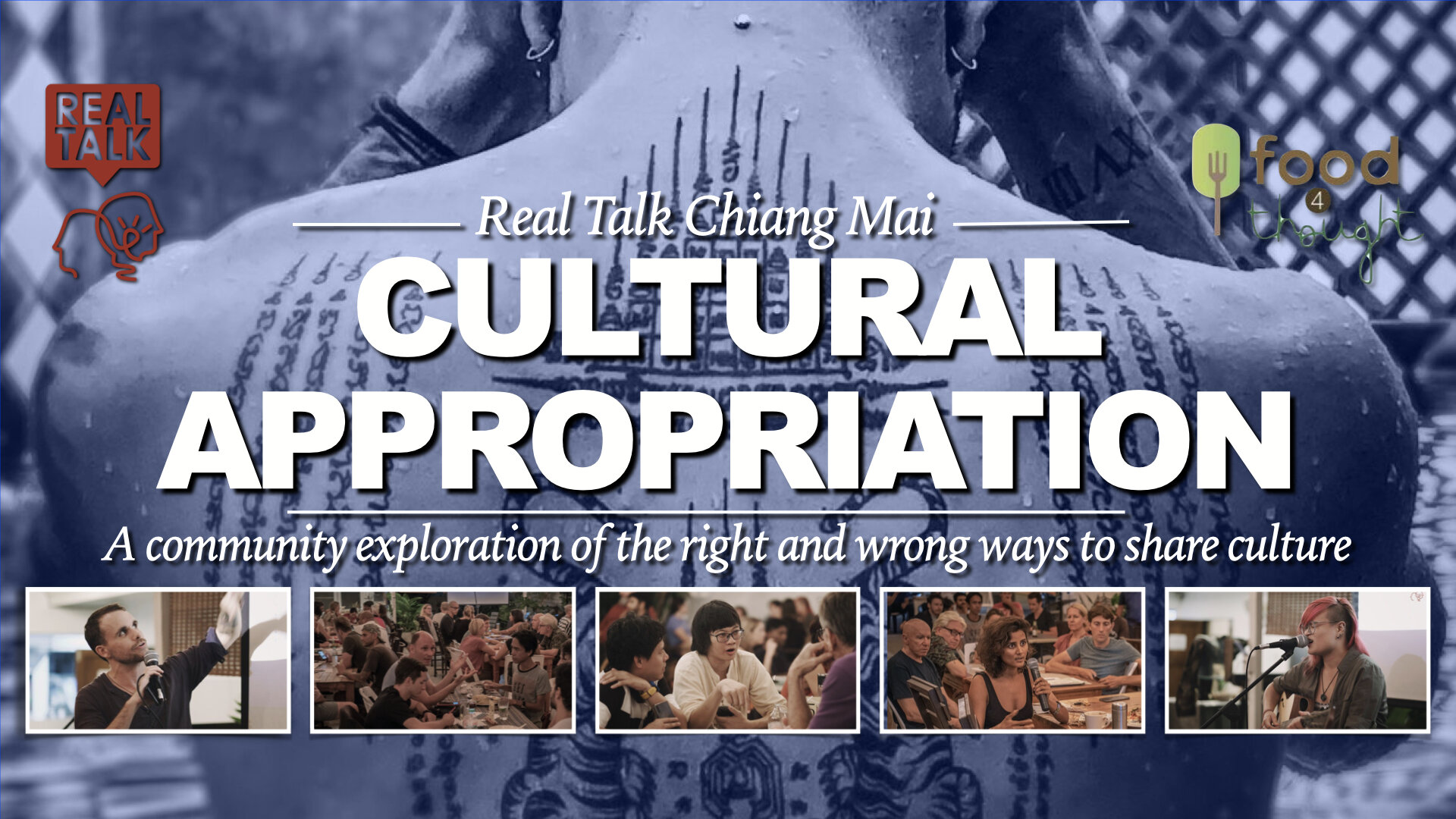Cultural Appropriation
What is cultural appropriation?
What is lost when culture is appropriated?
Who owns cultural artifacts?
Who has the authority to share them?
Should originating groups be compensated when their culture is adopted for commercial purposes (e.g. shirts, etc.)?
Join the Chiang Mai Philosophy Forum every Wednesday for meaningful conversation, unbiased talks, games, music, art, panelist Q&As, and more exploring contemporary divisive issues from gender pronouns to veganism. This week, we explore the arguments around cultural appropriation!
Drink, think, discuss!
Stay updated with future events by joining our Facebook group at
www.facebook.com/groups/chiangmaiphilosophyforum
Artwork
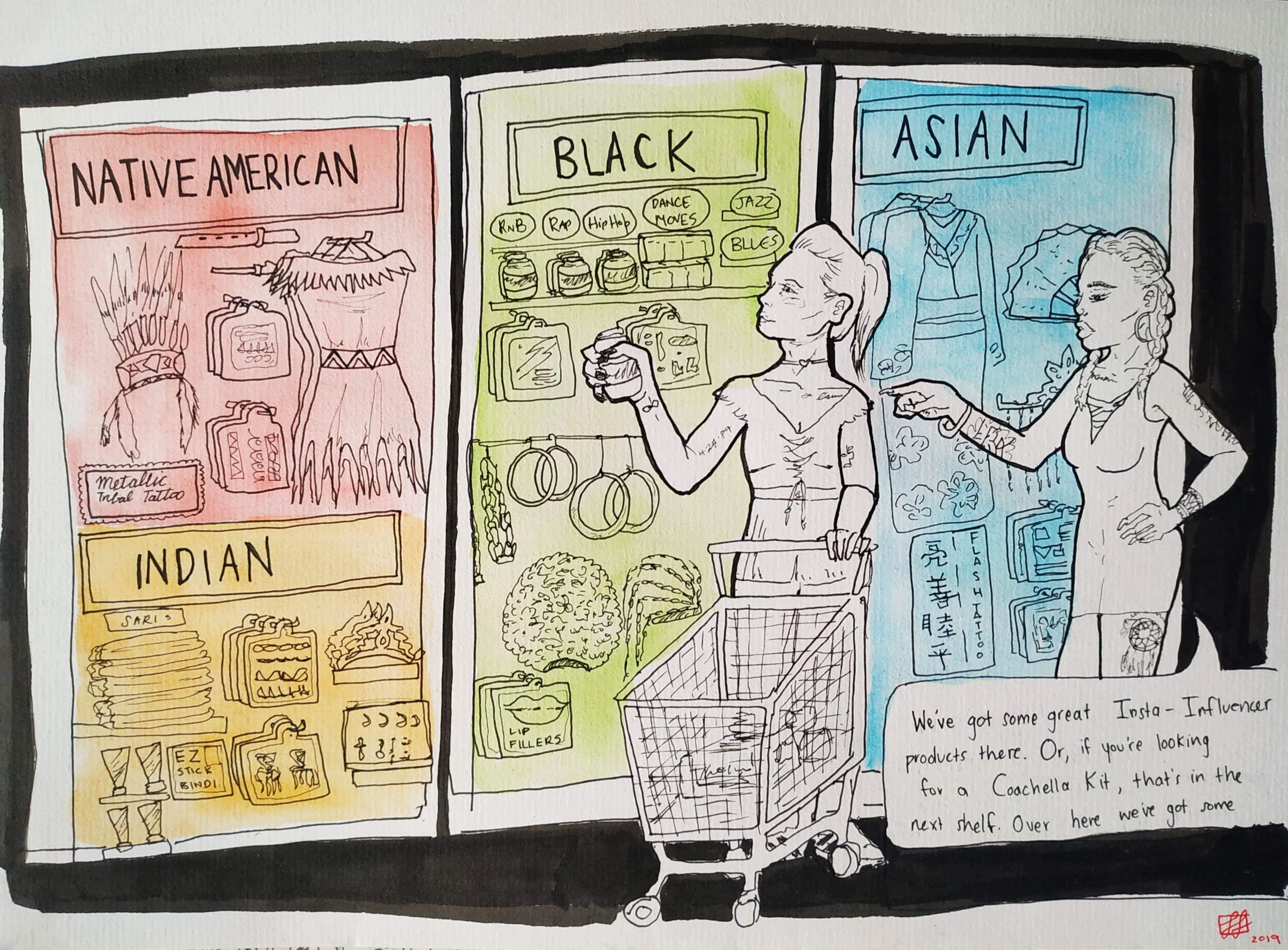
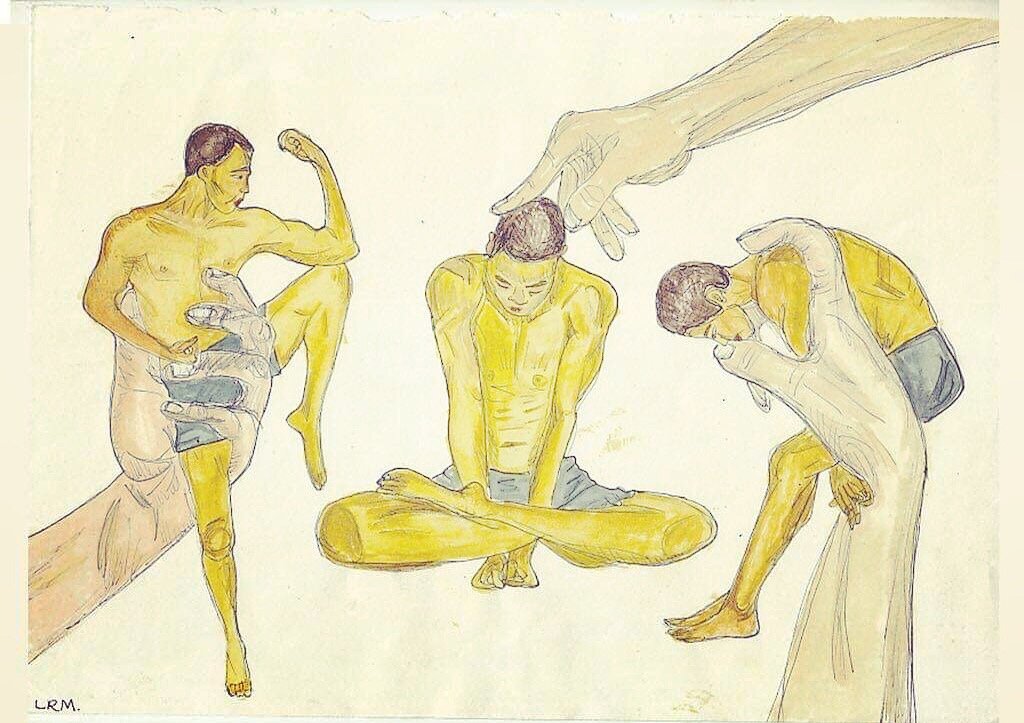

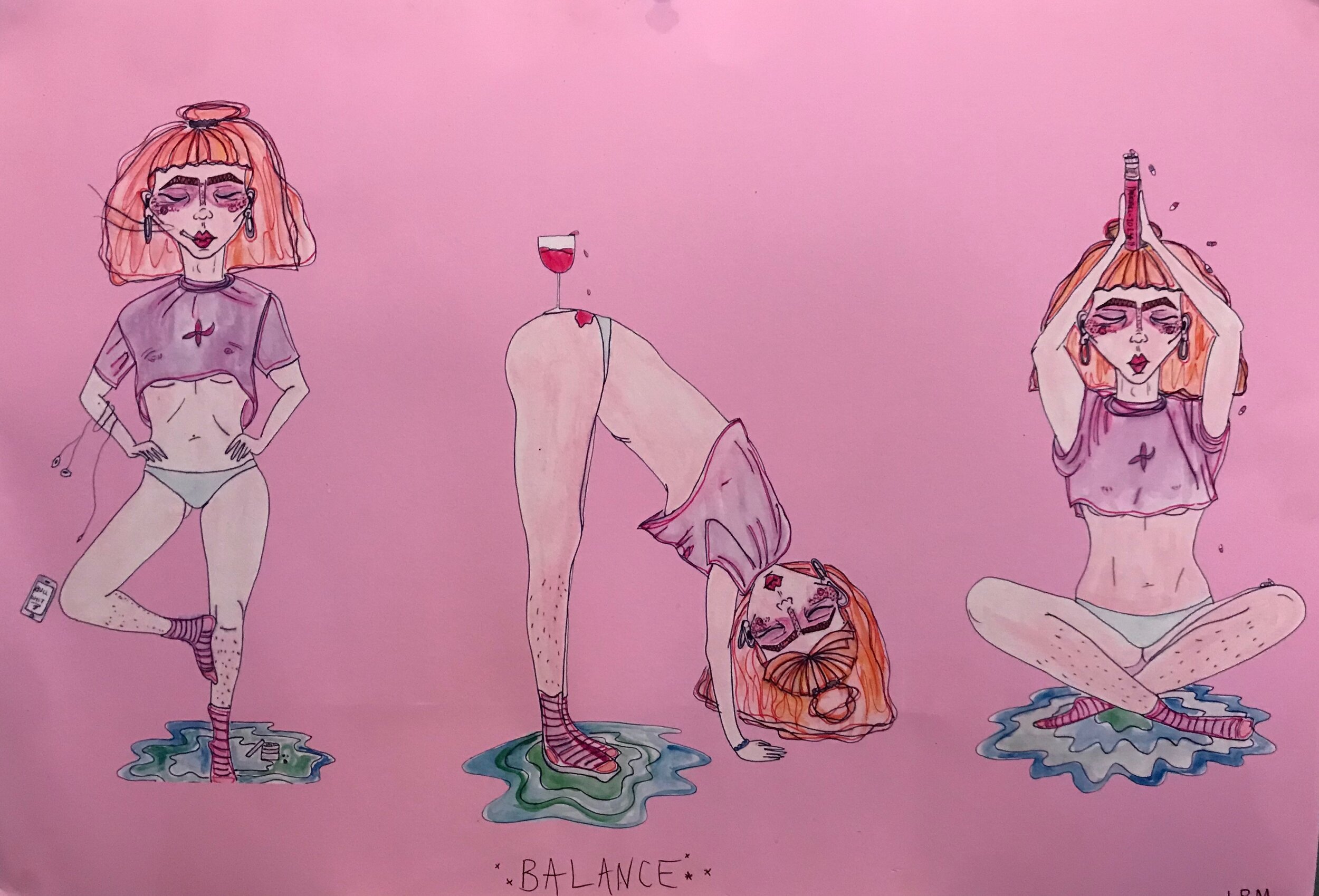
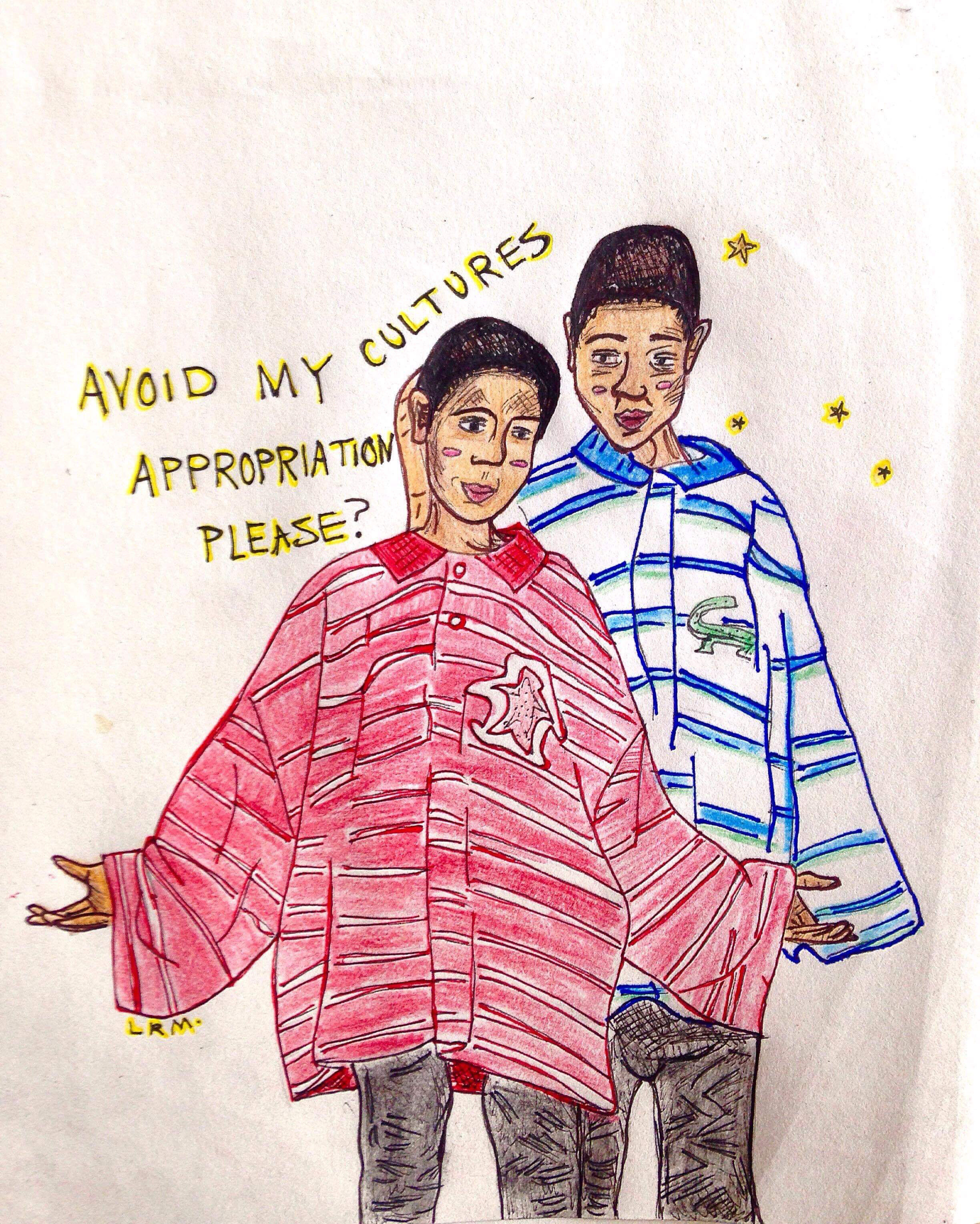
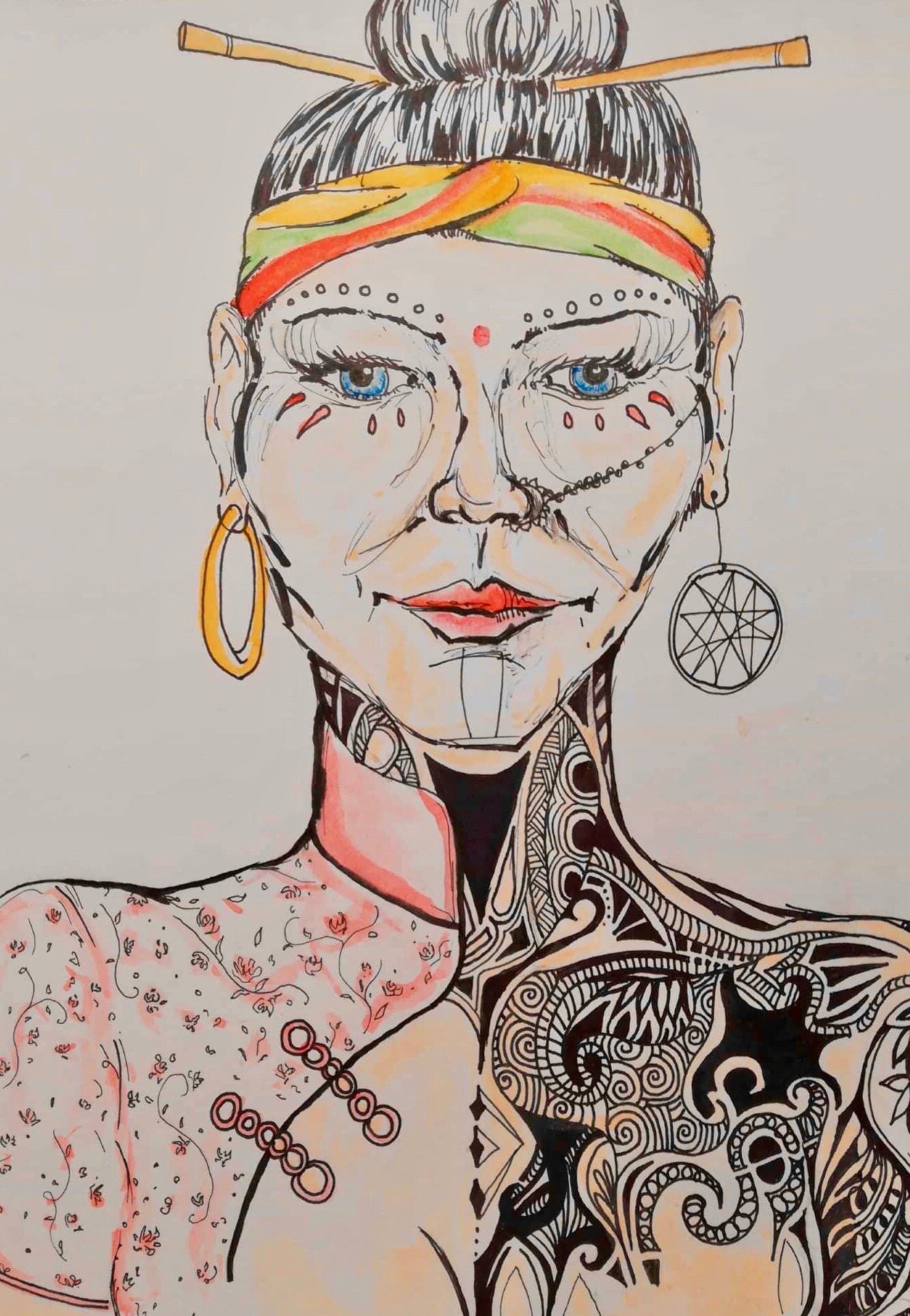
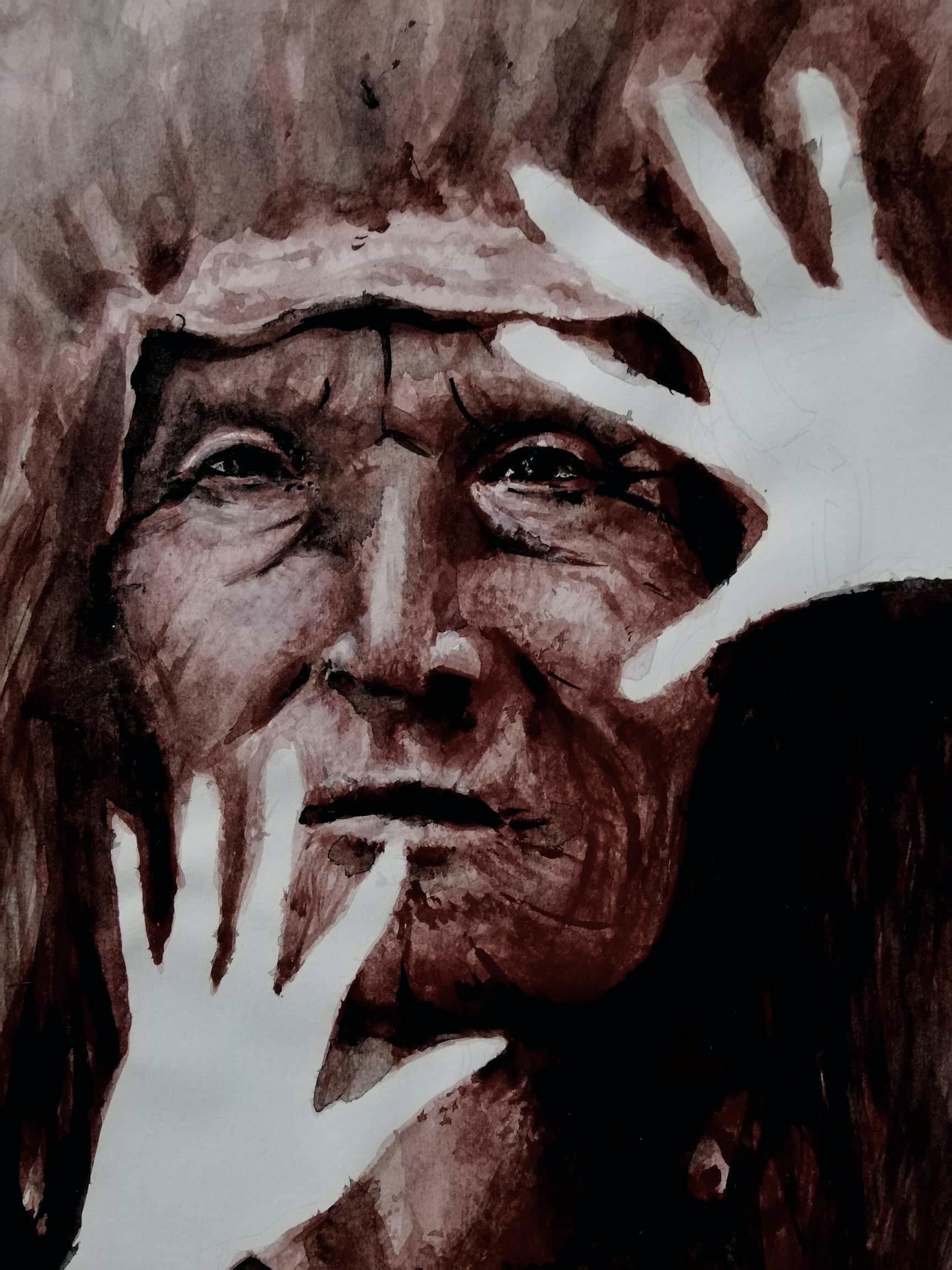
Haiku & Drawings
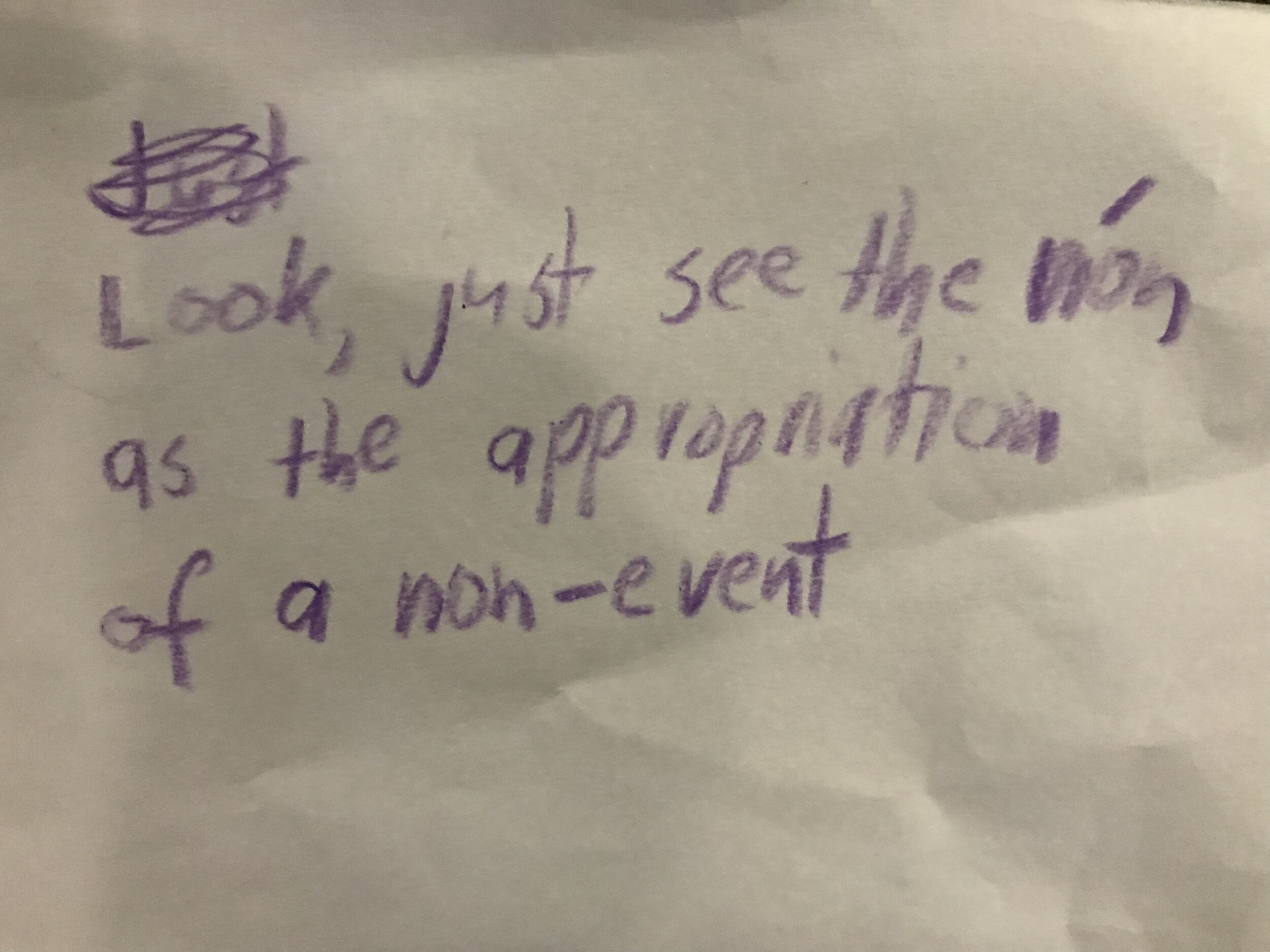
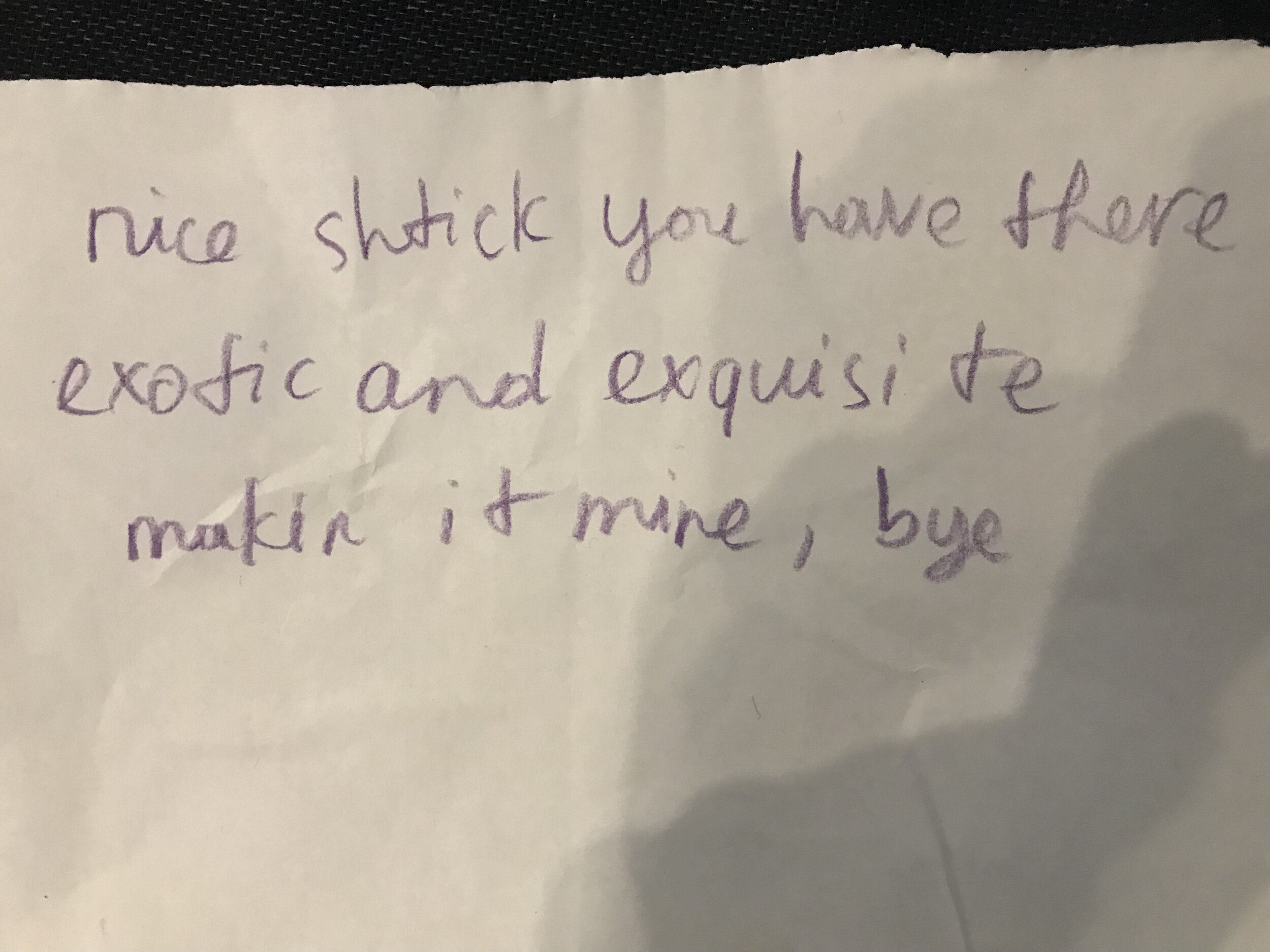
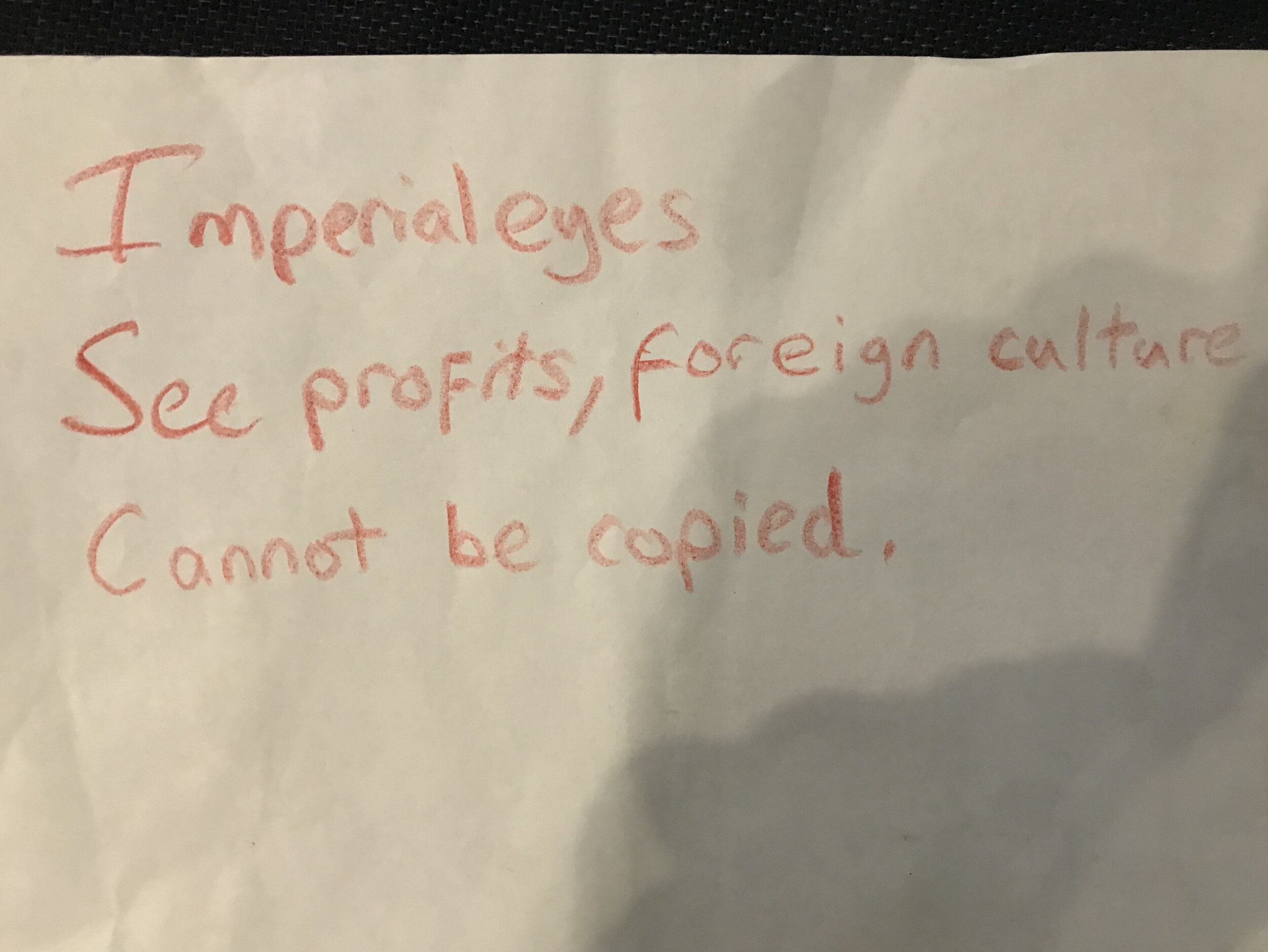
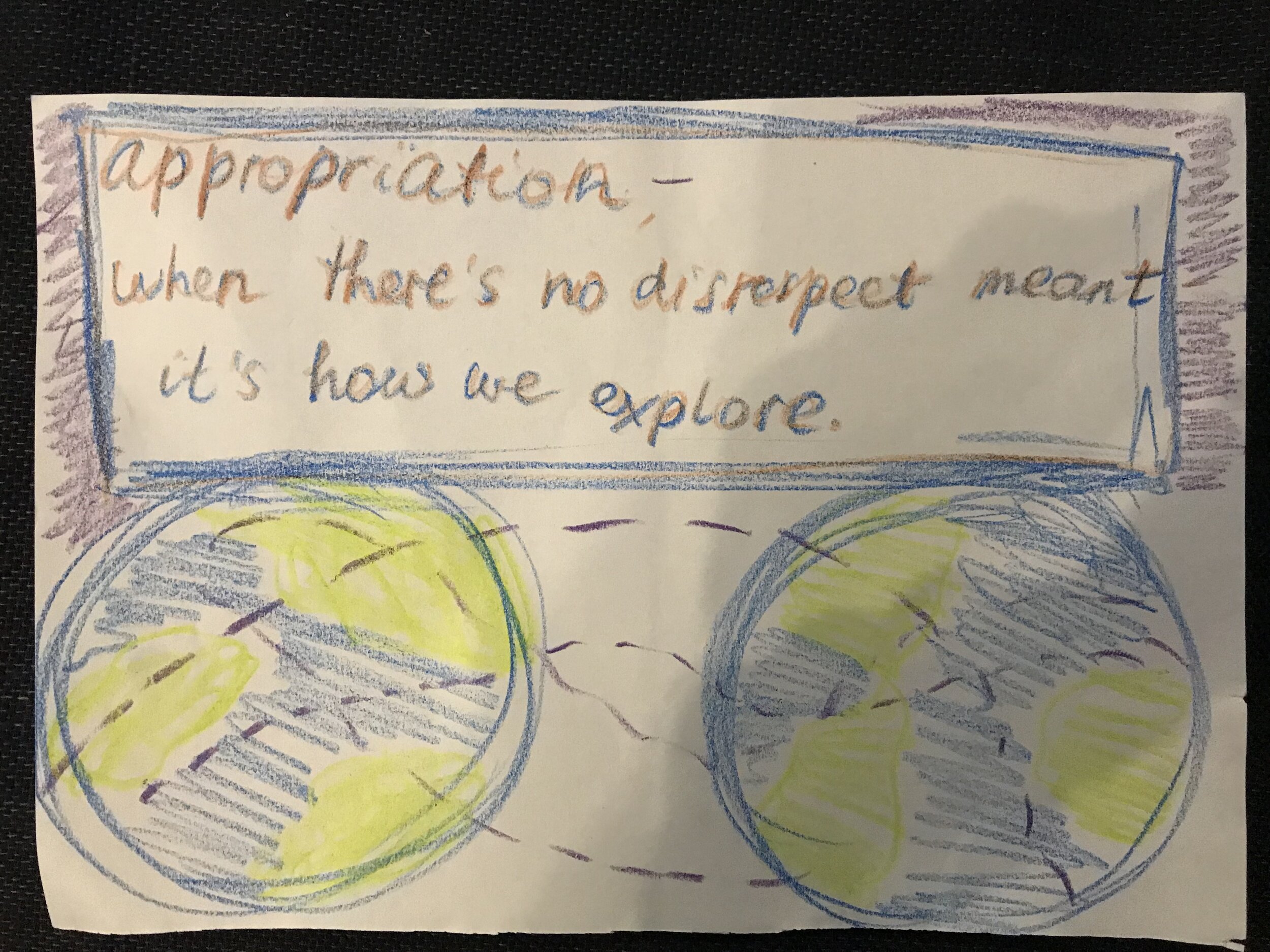

Photos by Joanna Berg






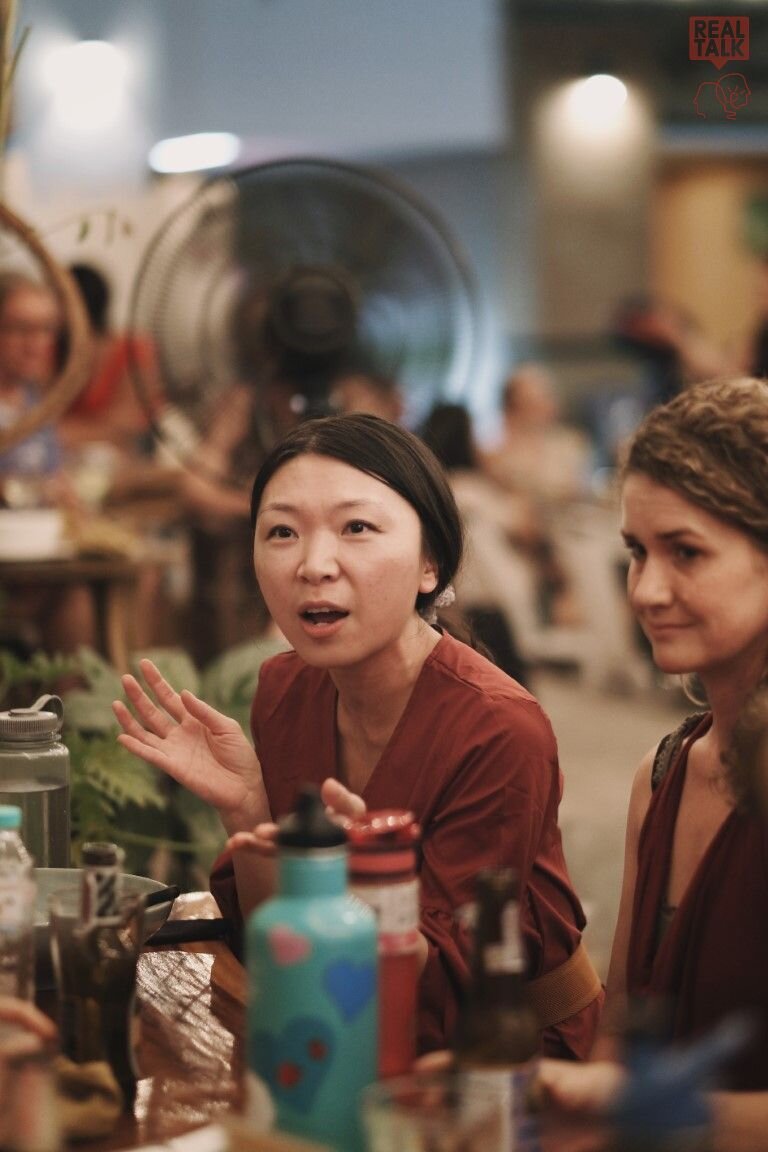
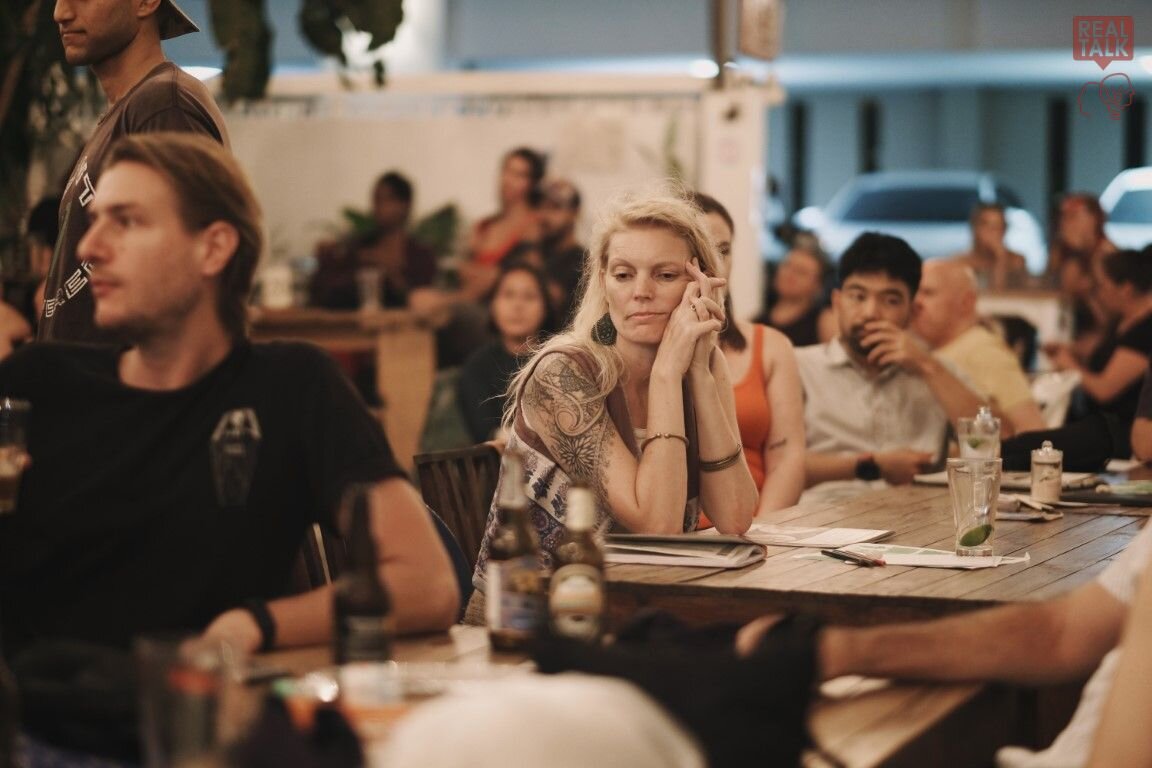






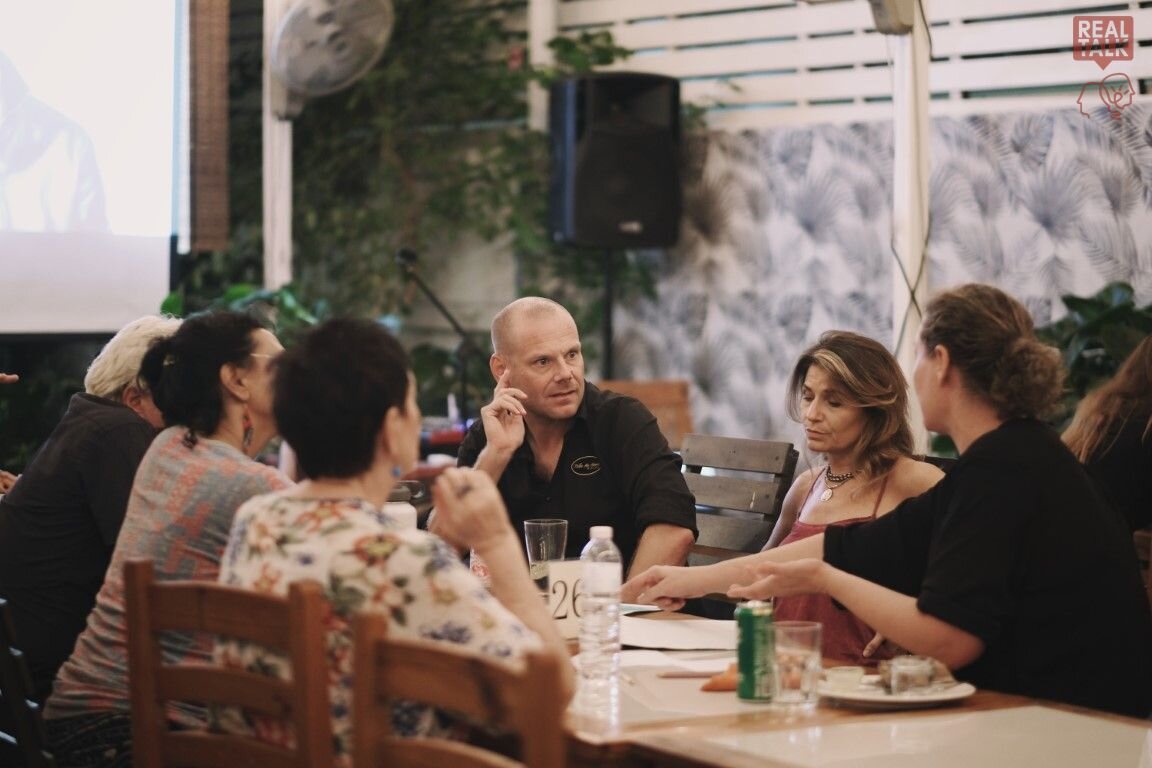
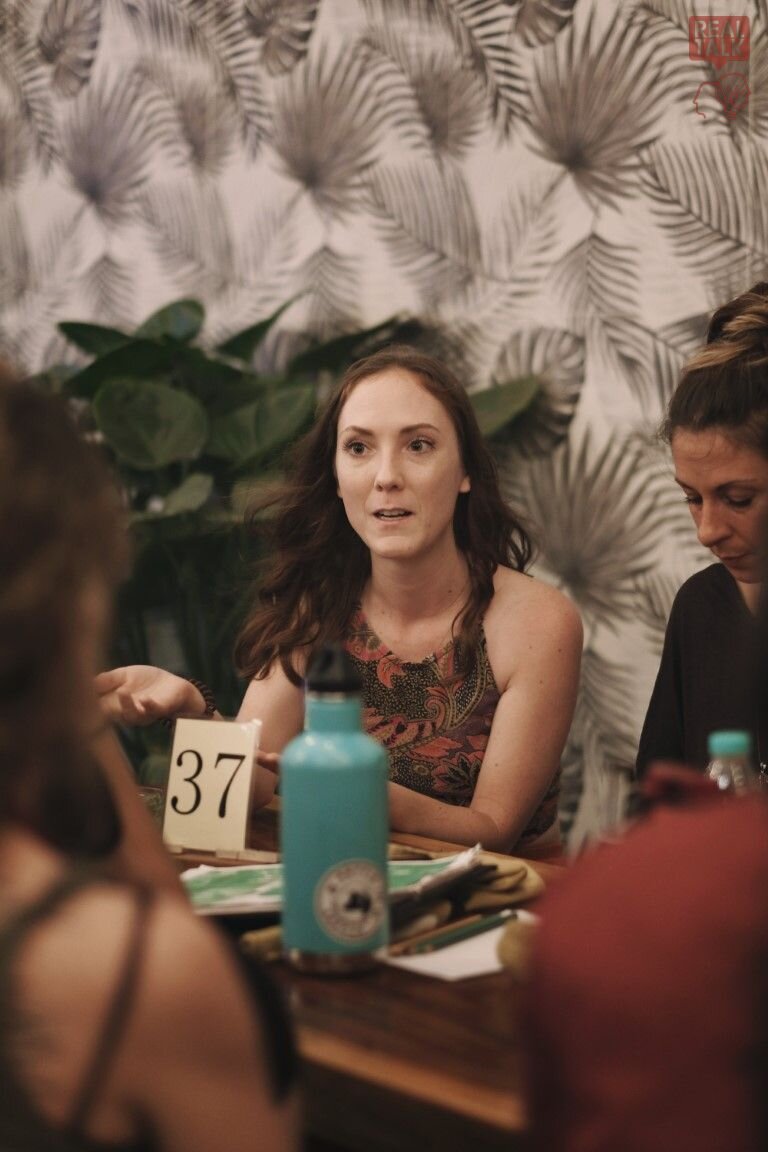


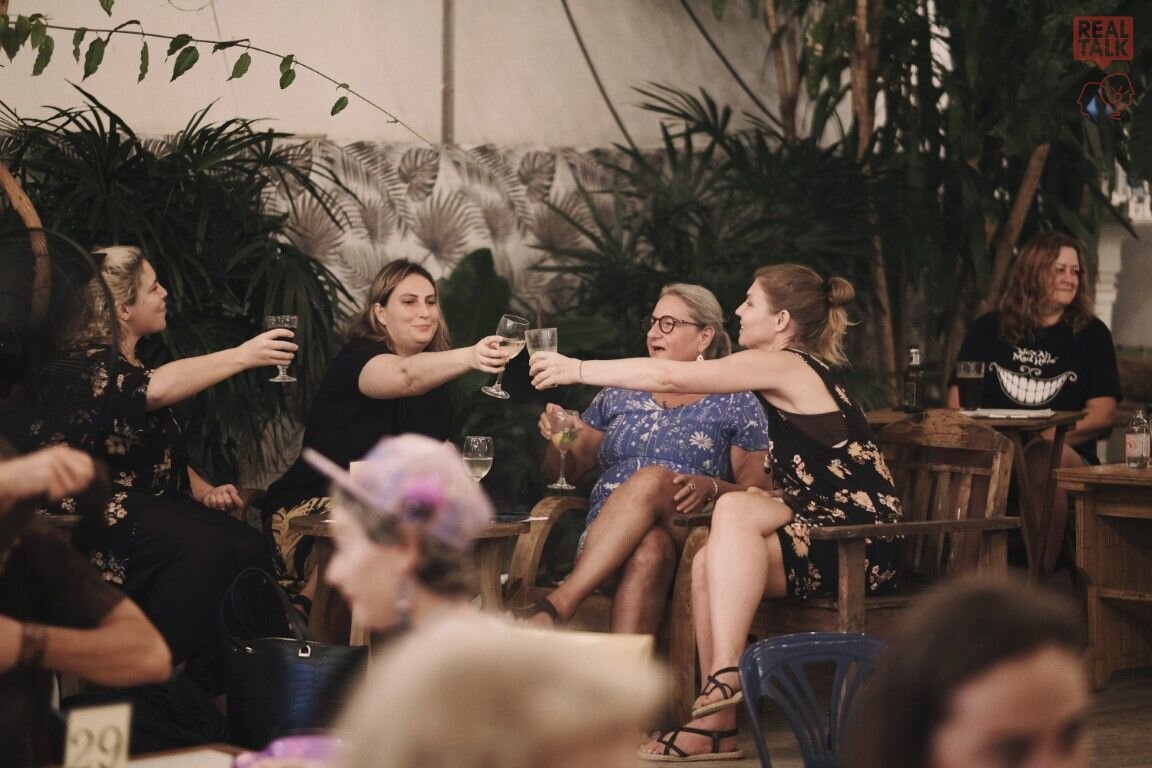


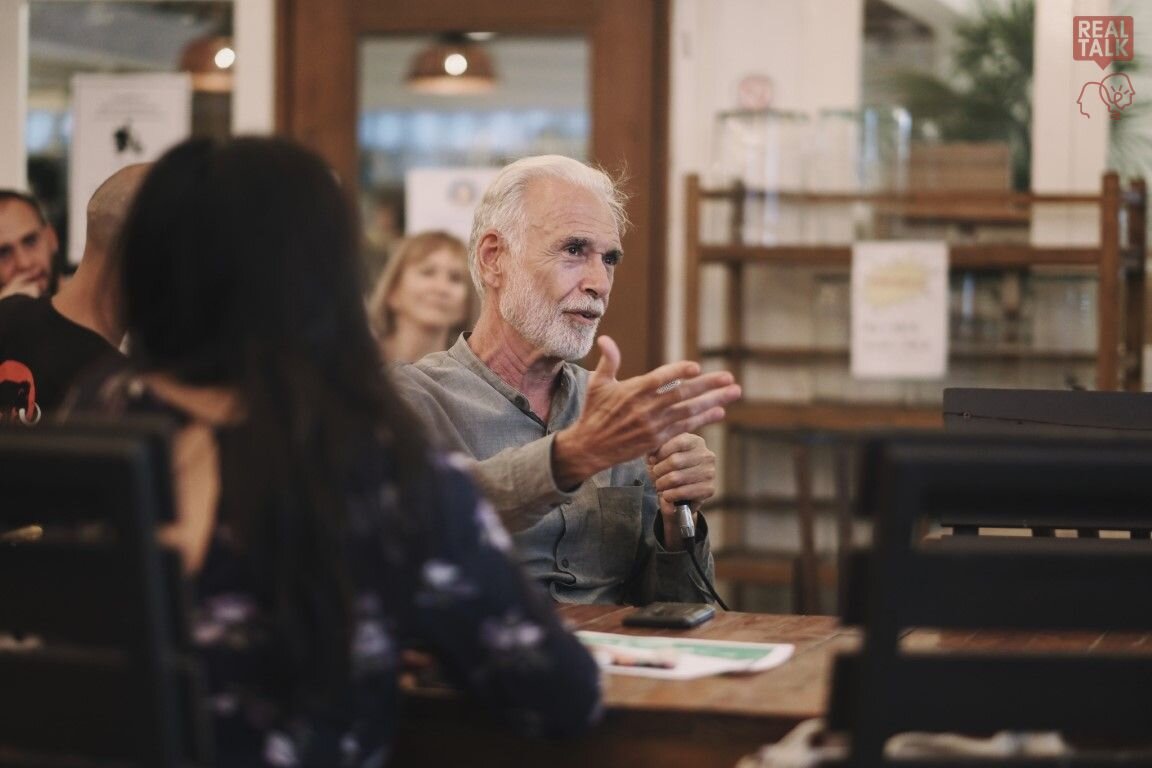
WEEKLY WRAPUP
The term 'cultural appropriation' first appeared in a 1976 text critiquing colonialism. Though the term is often loosely, colloquially applied to any instance of cultural exchange, most academic discourses on the subject stay within this colonial context.
Unfortunately, as with several terms explored at the Forum (e.g. toxic masculinity, feminism, etc.), there are many wildly varying competing definitions of 'cultural appropriation' even within academia. And for this reason, conversations around the practice often lead to greater confusion and division.
Alone, the term 'appropriate' is nearly synonymous with the term 'steal'. It's often wondered, though, when cultural-outsiders appropriate a piece of culture, what exactly is being stolen? And more broadly, how exactly can cultural appropriation harm source cultures?
It's been proposed that one way Cultural Appropriation may harm source cultures is by stripping cultural artifacts of their real or perceived psychospiritual power. A Sikh's relationship with God may be strengthened by the psychospiritual impact of wearing a turban. If the turban, however, were seen worn as a Halloween costume, this power may be lost (for those who attended our event on the Ethics of Comedy, this phenomenon may be related to V. S. Ramachan's False-Alarm Theory of Laughter). This power, it could be argued, is one thing that's being stolen.
But who exactly owns a piece of culture? Anyone of a particular nationality or race? Does a Christian Indian-Australian have special ownership over statues of the Buddha simply because of their blood or passport?
Learning Thai language as a cultural-outsider, eating pasta, celebrating Christmas - these acts may all fall under the wide umbrella of Cultural Appropriation. But are they necessarily harmful?
If permission is granted, revenue shared; if the source culture is listened to, acknowledged, and respected, should these act still be called Cultural Appropriation? Many academics, like James O. Young, say yes. They argue that it's possible to appropriate culture without harming the source culture at all.
In fact, disrespecting cultural artifacts may be committed just as easily by cultural-insiders as cultural-outsiders. If a woman of Mexican descent wears Día de Muertos make-up to a costume party, does this not essentialize, degrade, disrespect the source culture?
It has been proposed that one way to clear the fog of misunderstanding and miscommunication surrounding debates over Cultural Appropriation may be to stop relying on the term entirely, and instead choose to name the specific, offenses: Misrepresenting the meaning of cultural symbols, silencing cultures, essentializing cultures, romanticizing oppression, economically exploiting cultures, making fun of cultures, not crediting the creator, weakening the power of cultural symbols, etc.
--
I'd like to send a big thank you to everyone who attended Wednesday's exploration of Cultural Appropriation at the Chiang Mai Philosophy Forum, produced by Real Talk Philosophy.
A thank you is extended as well to the management and staff at Food4Thought for allowing us to host our events in their space.
And a massive thank you is sent to our dedicated, talented team for making these events possible:
- Project Assistant: Như Ngô
- Front Door: Carmen Uljanicka & Aman Parikh
- Special Music: "Back to the Roots" by Izzy Yoma
- Artwork: Lara Hardie, Lara Ross-Mcglynn, Helena Cornelia, & M.
- Photography: Bay Sareephan
- Philosophy Advisors: Josh Opperman, Jon Massmann, Marcus Aurelius Higgs
- Business Advisor: Tarek Mansour
And a special shout our to our newest Sustaining Member, Rachel Mayo. And to our first Philosopher King, Amy Nicole Lewis!
If you would like to receive complimentary admission, members-only discussions, slides, artwork, music, questions, and more, consider becoming a member at www.patreon.com/realtalkphilosophy. This helps support our team of musicians, artists, presenters, administrators, designers, researchers, and more.
I hope to see you all next Wednesday for our community exploration of The Ethics of Sex Work!
Upcoming Events
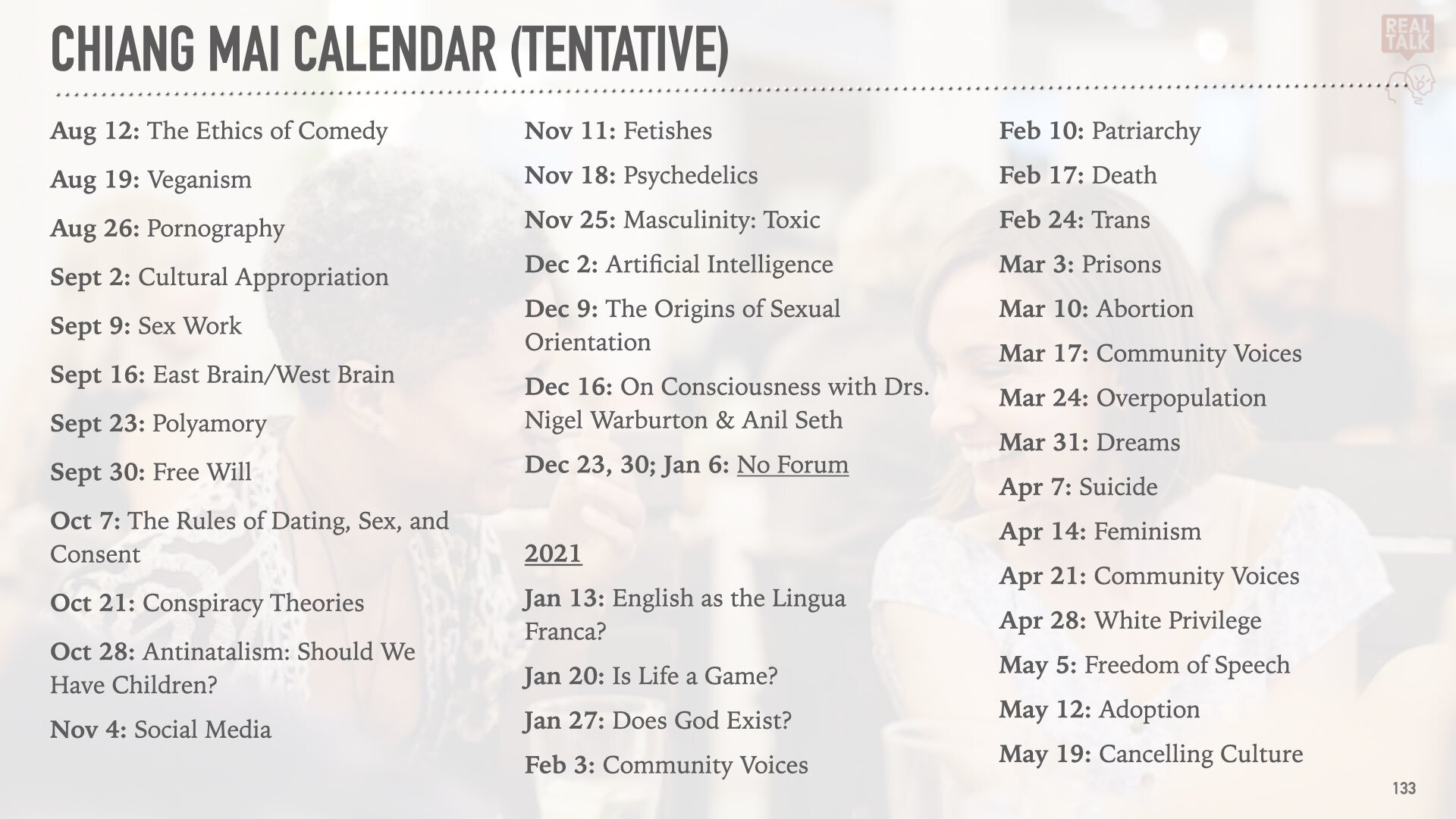
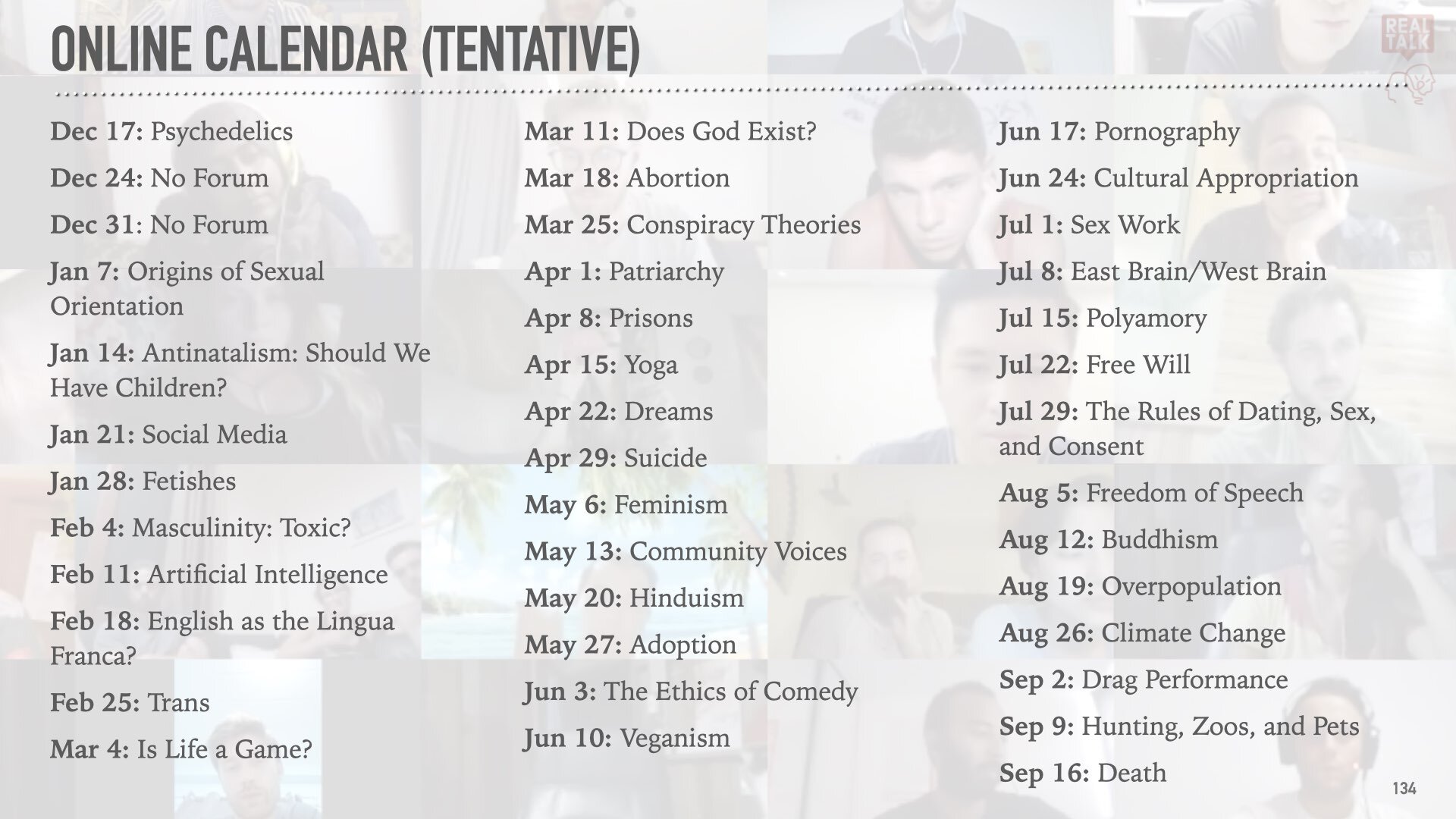
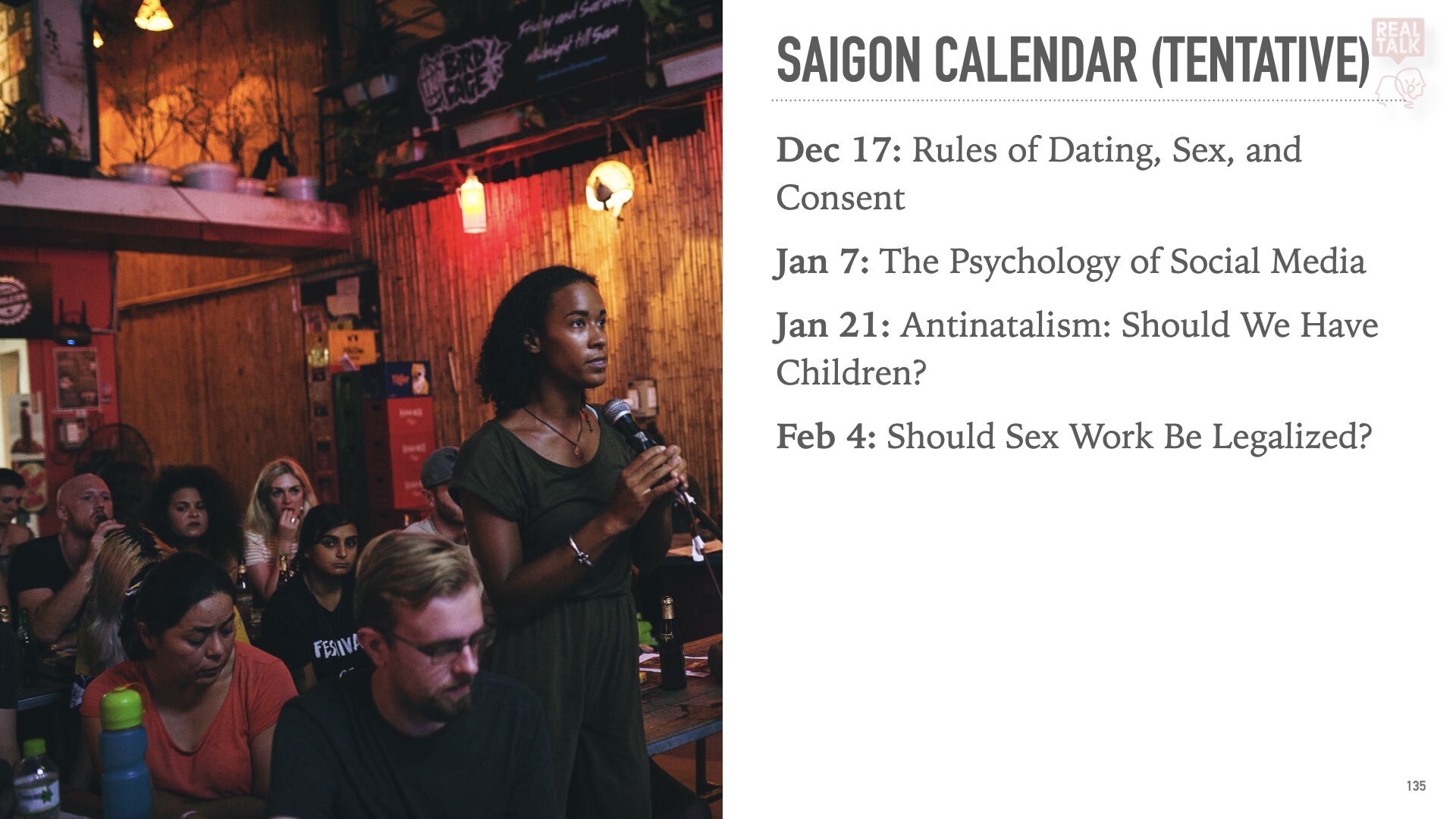
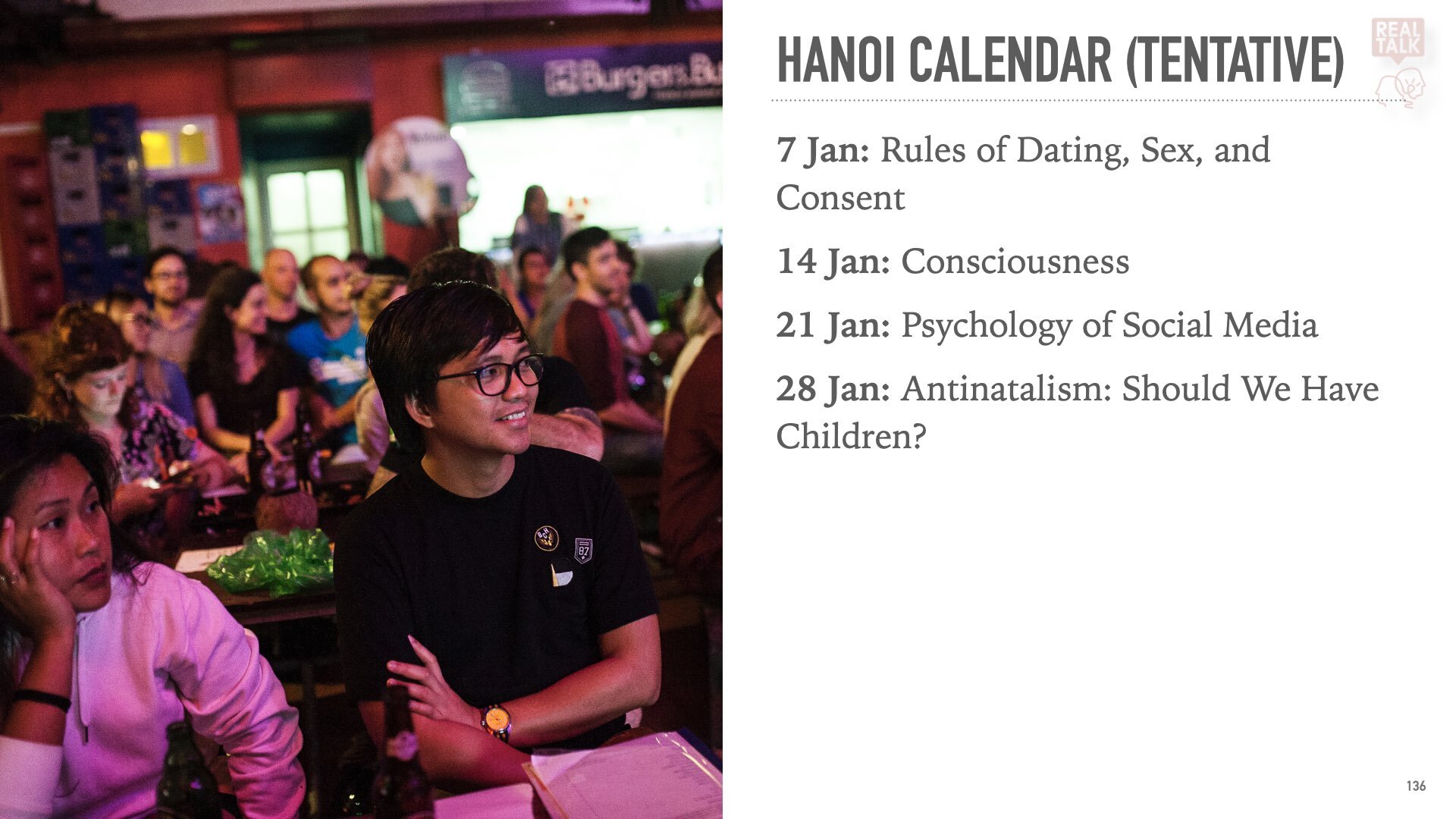
External Links
Facebook Page
https://www.facebook.com/realtalkphilosophy/
YouTube Channel
https://www.youtube.com/channel/UCgfP9hJfLcG_scYbA9XZOgQ

